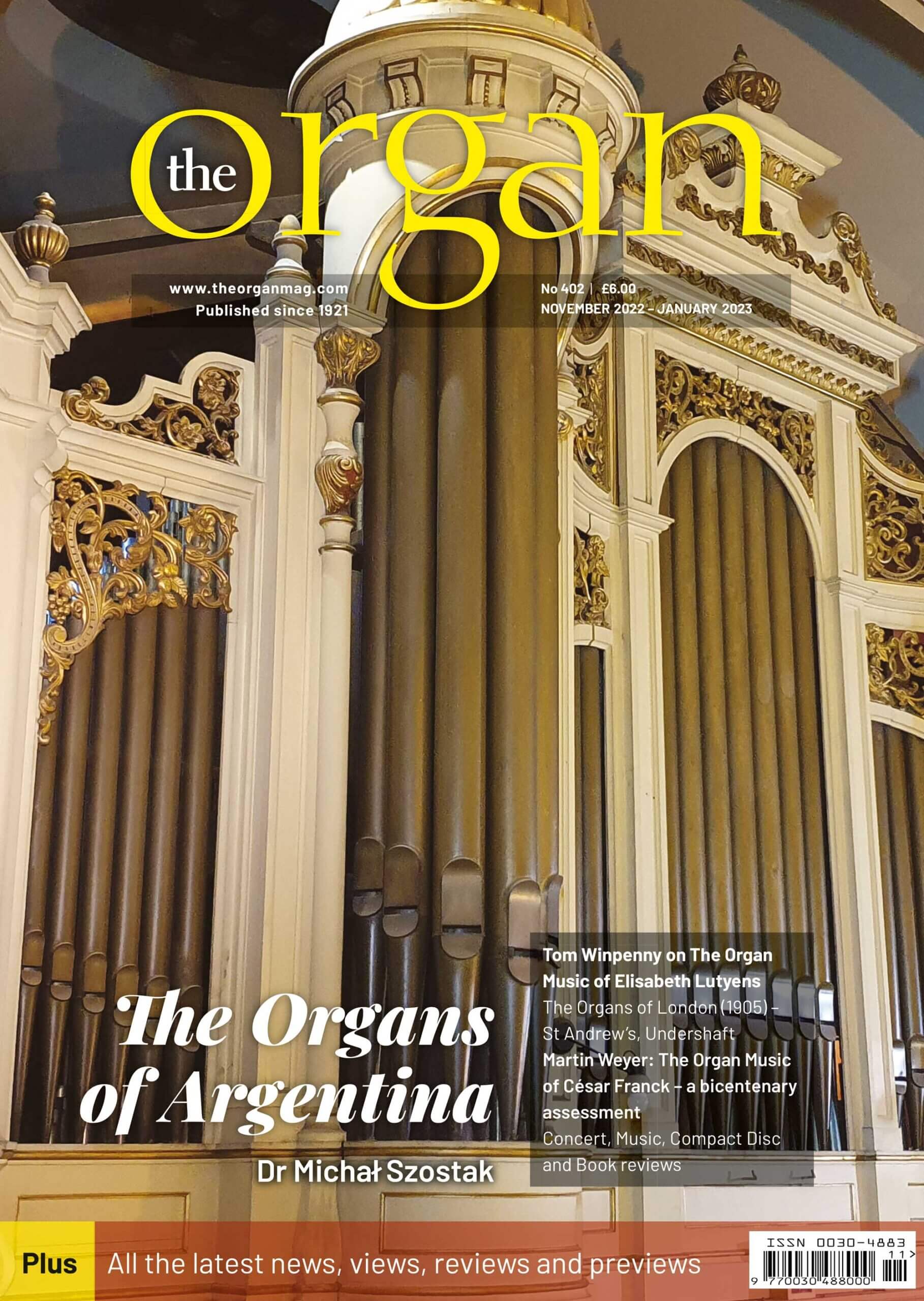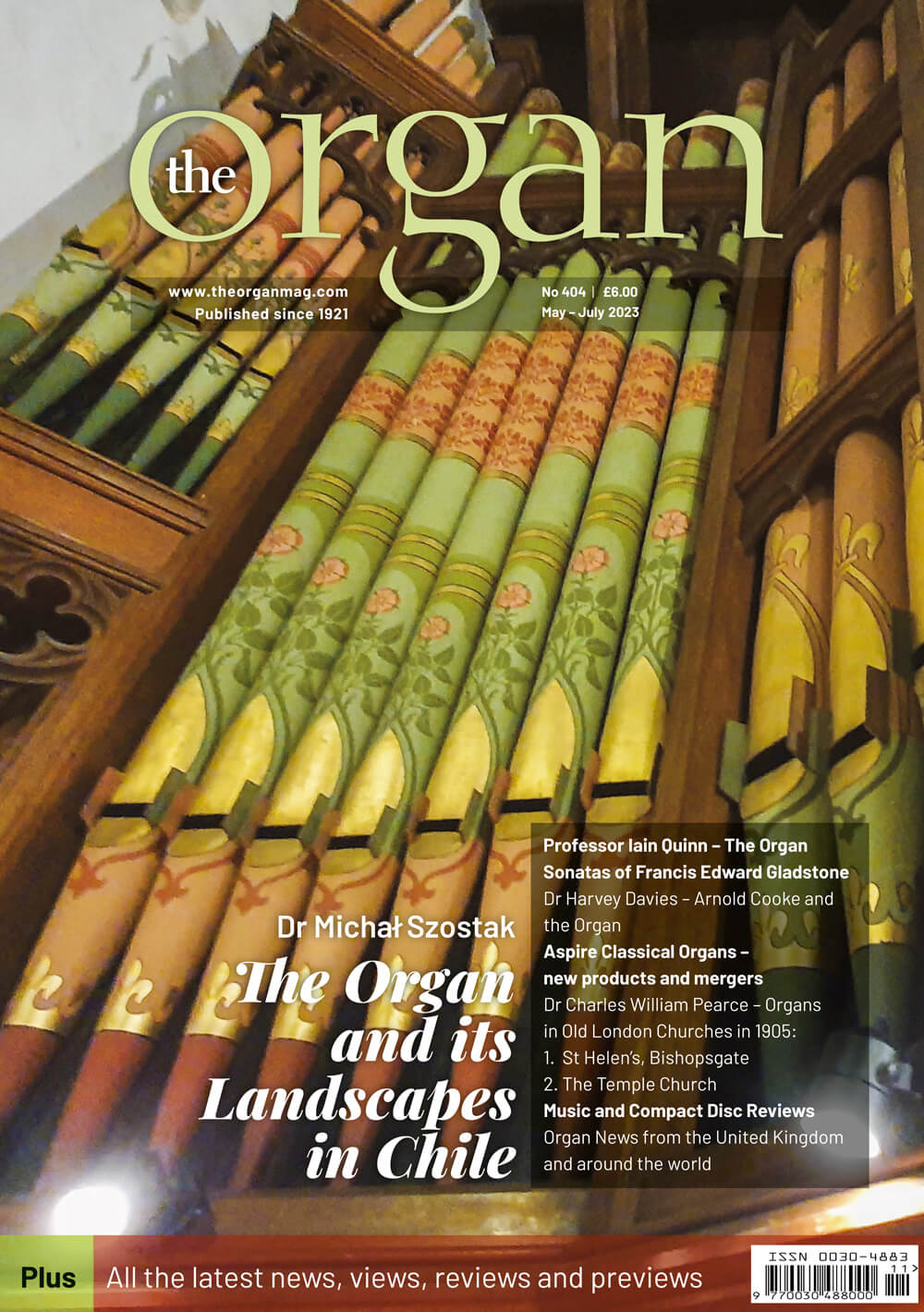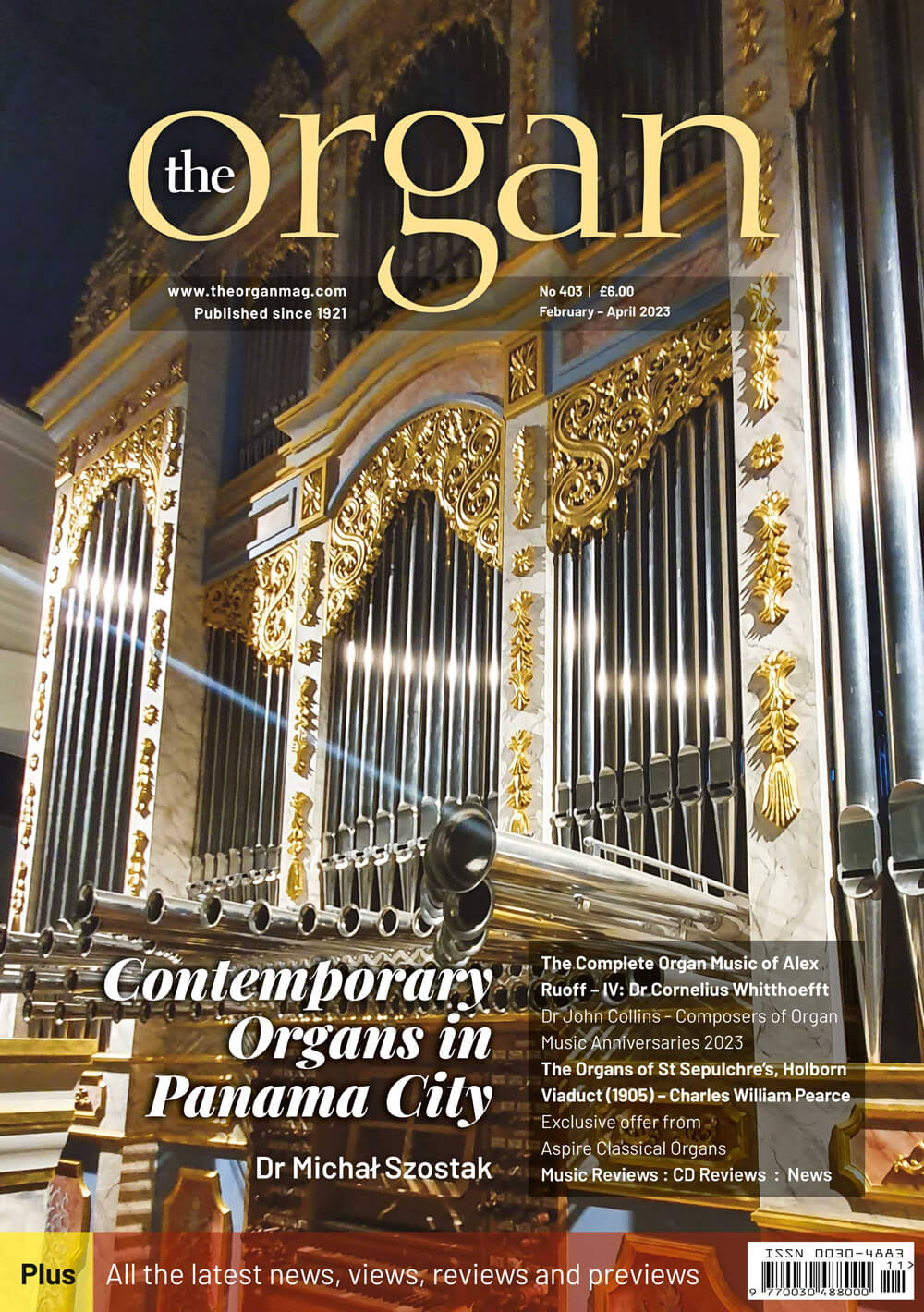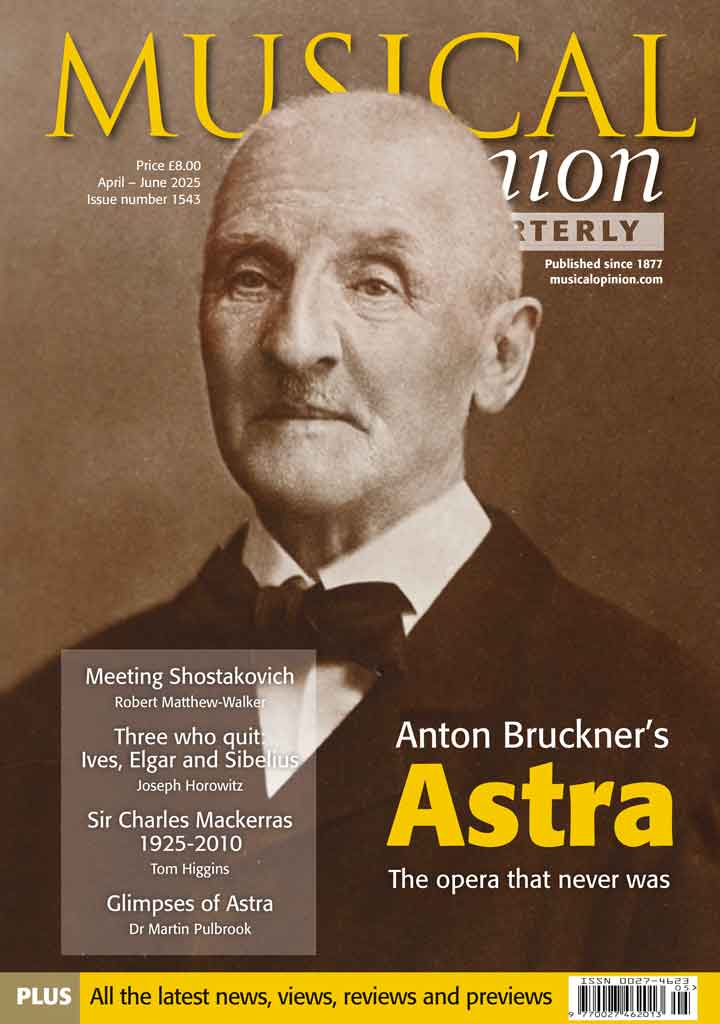

Current Issue
Previous Issues
Spring 2025. Issue 1541
Winter 2024. 1540
Autumn 2024. 1539
Summer 2024. 1539
Spring 2024. 1538
Winter 2023. 1537
Autumn 2023. 1536
Summer 2023. 1535.
Spring 2023. 1534.
Winter 2022. 1533.
Autumn 2022. 1532.
Summer 2022. 531.
Following the dispicable and illegal invasion of Ukraine, the Summer 2022 edition of Musical Opinion carries a large article about Sergei Prokofiev, arguably its most famous composer along with an overview of the Ukrainian classical music scene over the last one...
Spring 2022. 1530.
Winter 2021. 1529.
Autumn 2021. 1528.
Summer 2021. 1527.
Spring 2021. 1526.
Winter 2020. 1525.
Autumn 2020. 1524.
Summer 2020. 1523.
Explore By Topic
Spring 2020. 1522.
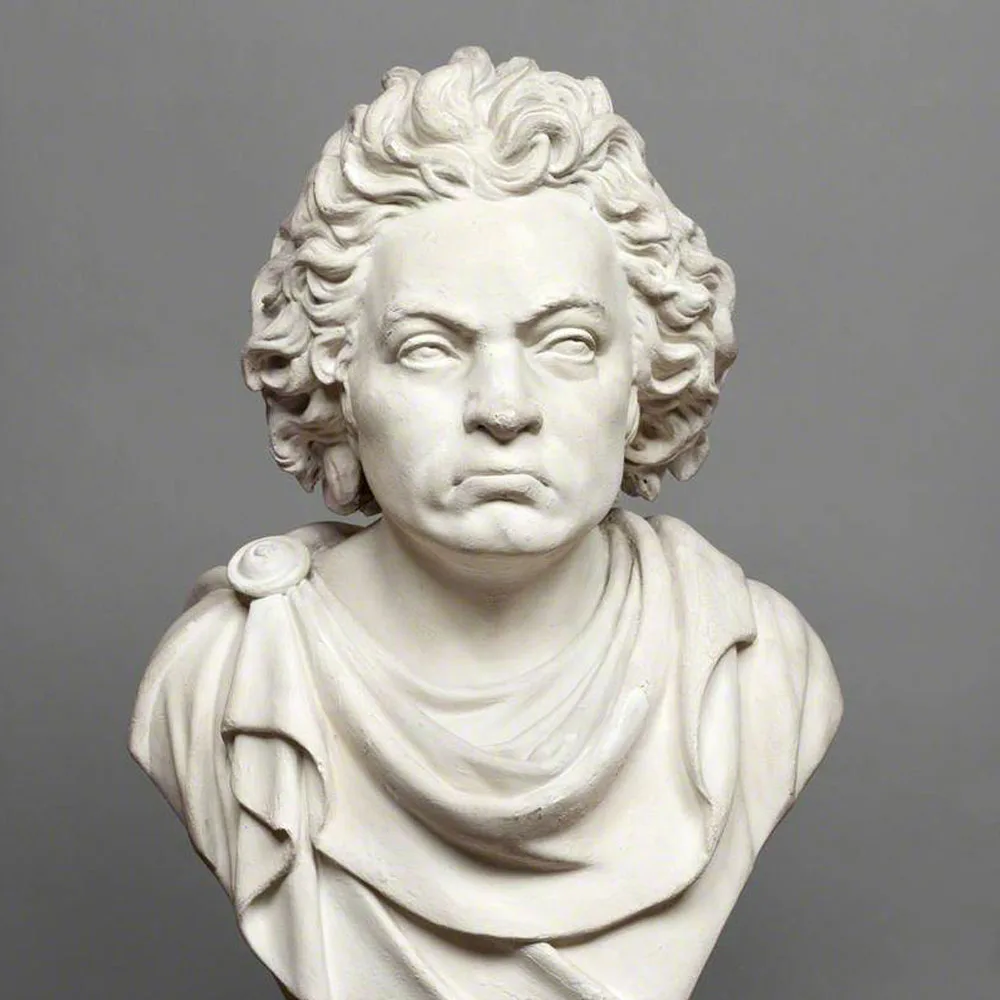
Ludwig van Beethoven (1770-1827)
Ludwig van Beethoven (1770-1827)
It is probably fair to say that no composer has shown so genuinely continuous, concentrated and far-reaching a development as Beethoven. He stands not only at the crossroads of two centuries, the eighteenth and nineteenth, but he marks a crucial stage in the growth of the humanities. He is, perhaps, the one great composer whose work is in human terms so comprehensive that in contemplating it we do not think in terms of its ‘period flavour’; if we listen even to Bach or Haydn we are instantly aware that they represent the genius of two particular periods in the eighteenth-century, while Wagner or Brahms create an immediate impression of what it must have felt like to be a nineteenth-century German. The further away we get from most artists the more is this period sense likely to loosen our grasp of their individualities. Mozart is no Dresden china composer, but there is such a popular misconception about him – and if we go further back, how many intelligent music lovers can quickly distinguish Victoria from Palestrina, or Wilbye from Weelkes?
Attempts to fit Beethoven into historical trends are almost always doomed to confusion, and it has often been assumed that he was the father of romantic music, that his fierce independence and dramatic personality detonated a musical explosion. After Beethoven, it is said, composers were free to let fly as rebellious individuals.
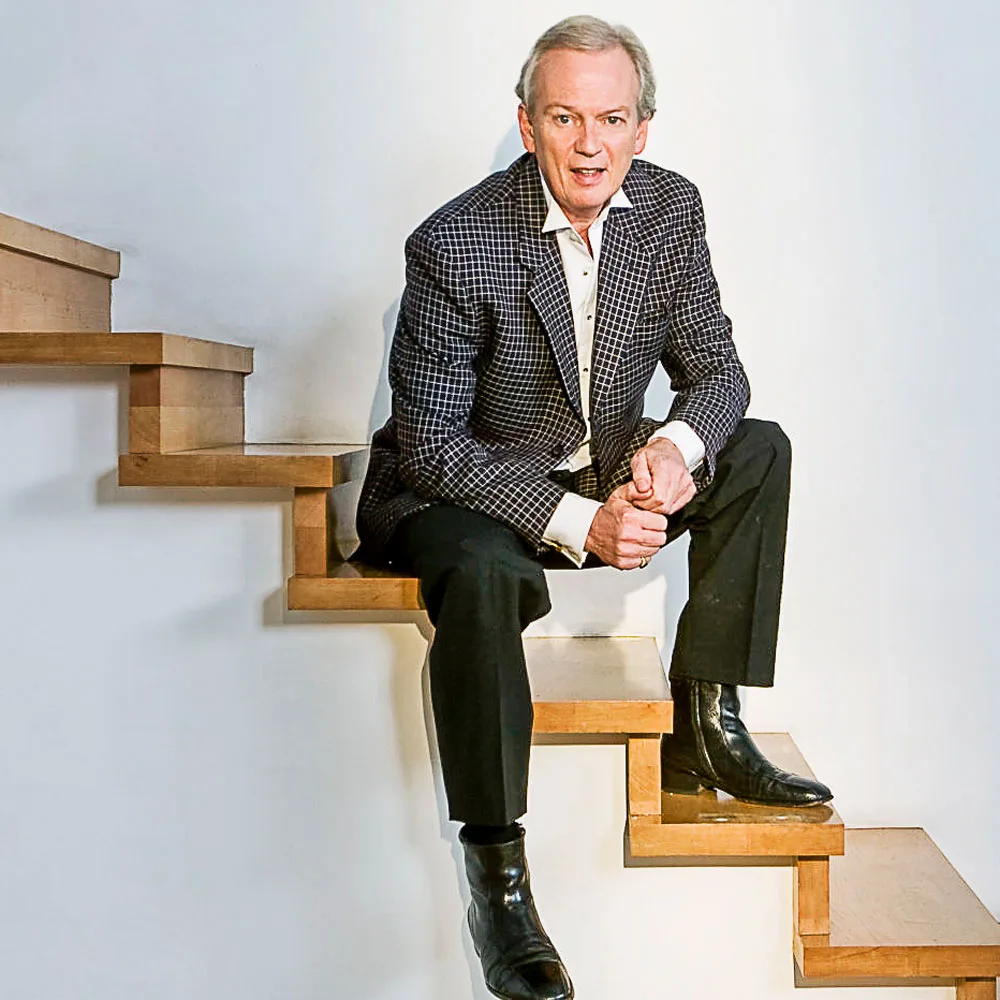
Howard Shelley at 70 – a career on record
James Palmer
The pianist and conductor Howard Shelley is to celebrate his0th birthday on March 8th in a manner that surely no other musician of his accomplishments has ever attempted. On that single day, at St John’s, Smith Square in London, he will perform all five piano concertos by Beethoven – the 250th anniversary of whose birth coincidentally falls this year, albeit not until December.
Howard Shelley is one of the most recorded artists in the world, with a hugely extensive discography approaching 200 CDs recorded over almost forty-seven years. As a solo pianist and as a conductor, yet not solely directing the orchestra from the keyboard his discography remains remarkably wide-ranging. His most recent recording as an orchestral conductor is a Hyperion disc of music by Stanford with the Ulster Orchestra, including several world premiere recordings. Writing of this disc, the on-line review site Classical Source commented: ‘The performance here is superb, with fine orchestral playing and flawless singing of the choral group Codetta. Shelley’s combination of internal balance and apposite tempos betrays the hand of a genuine conductor.’
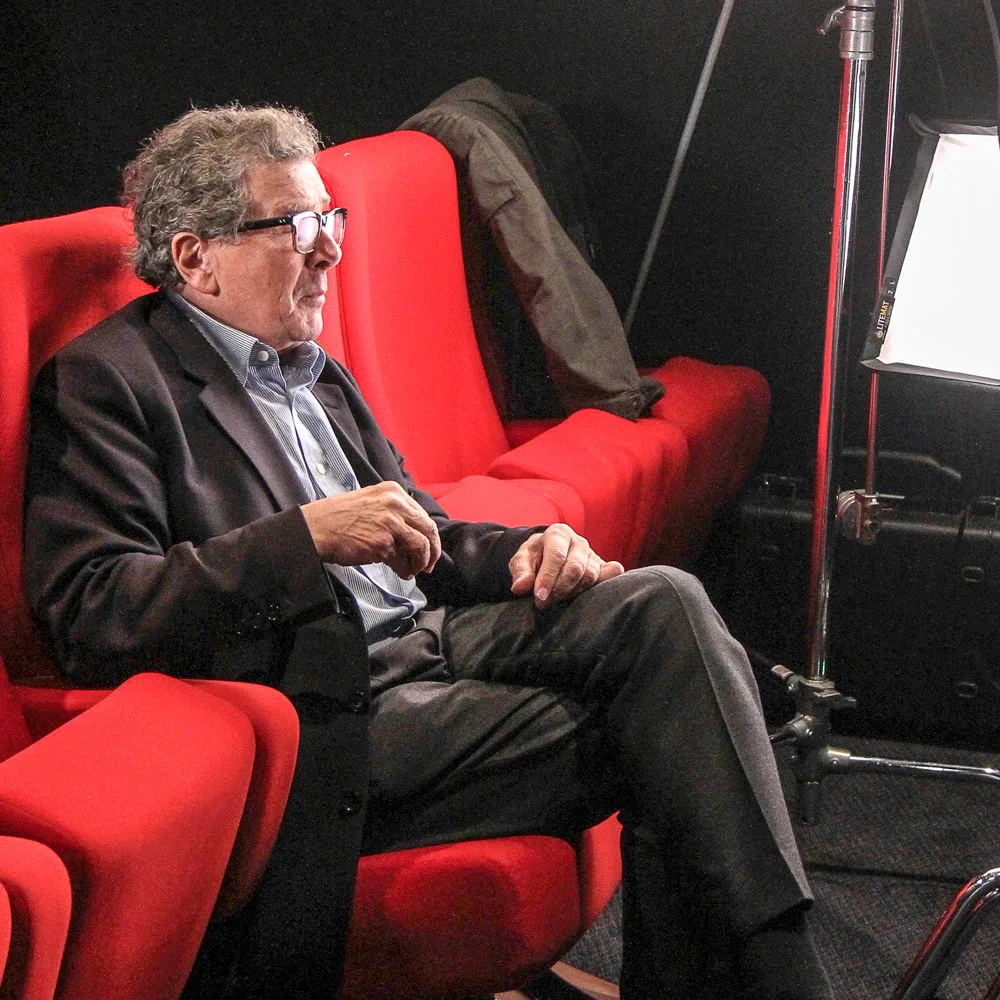
The Snowman cometh A defence of musical popularity - Howard Blake
Robert Matthew-Walker
For classical musicians, the Christmas season is often one of the busiest in the performing year, with its traditional fare of carols, Messiah, Christmas Oratorio, Tchaikovsky Nutcracker and, now growing in popularity, Hely-Hutchinson’s Carol Symphony and Vaughan Williams’s Fantasia on Christmas Carols heading the list of purely orchestral pieces.
Such works have become sanctioned by long usage, although they retain their inherent freshness, but a much more recent work, by a living serious composer, has now become such a part of Christmas that I am certain it will be produced again and again until well into the next century. Nor am I necessarily referring to a show that is often considered to be exclusively for children, for it is one of those rare theatrical pieces that appeals and impresses theatregoers of all ages. Such is the magic of this unique and original theatre piece that audiences are held spellbound throughout.
Audiences – of whatever ethnic make-up of which I have been a member – sit, quiet as church-mice, enthralled by the goings-on on stage and in the air, especially when both the Boy and the Snowman, who has magically come to life, literally fly in the air, up and away, round and round the scenery in a thrilling theatrical moment that has many gasping and calling out in sheer delight.
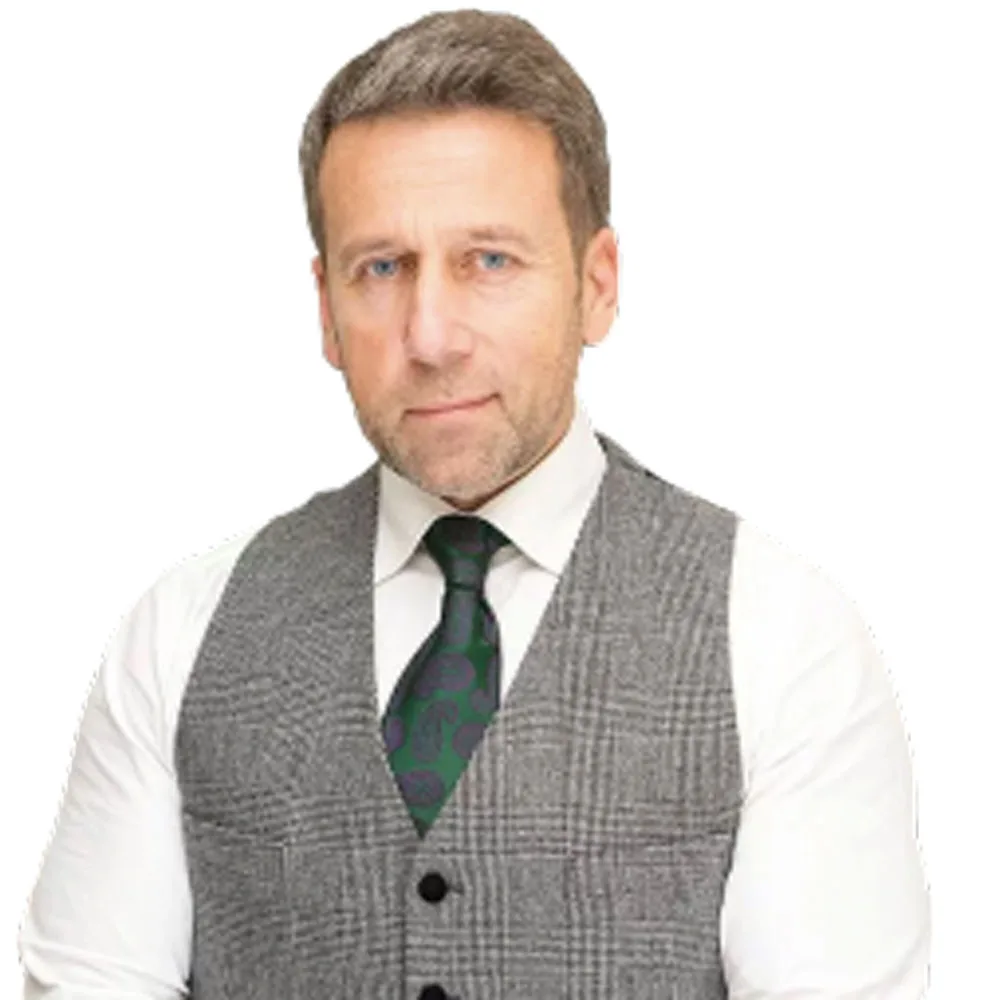
The Symphonic Music of Călin Humă: an introduction
Robert Matthew-Walker
Marking the release of the first recording of music by the contemporary Romanian composer on the Guild label, the Editor outlines some of the features of these major works.
………………
The composer Călin Humă was born in 1965 in Lasi, in the north-eastern region of Romania known as Moldavia. Following high school and after completing his compulsory military service, Humă was able to follow a commercial career alongside his musical studies before being appointed his country’s Honorary Consul to the United Kingdom. He has lived and worked in Britain for over twenty years, his diplomatic duties running alongside his musical development.
Humă is not at all a prolific composer. He has been a slow developer in arriving at his mature work, which has been mostly concerned in recent years with larger symphonic forms, at the head of which stand two symphonies (2015 and 2019) and the Symphony-Concerto for piano and orchestra (2018).
The language of Humă’s music may be described as being, at heart, rooted in the folk-music of his native Moldavia, but this should not be confused with ‘folk-based’ or, indeed, considered that the composer’s themes are folk music.
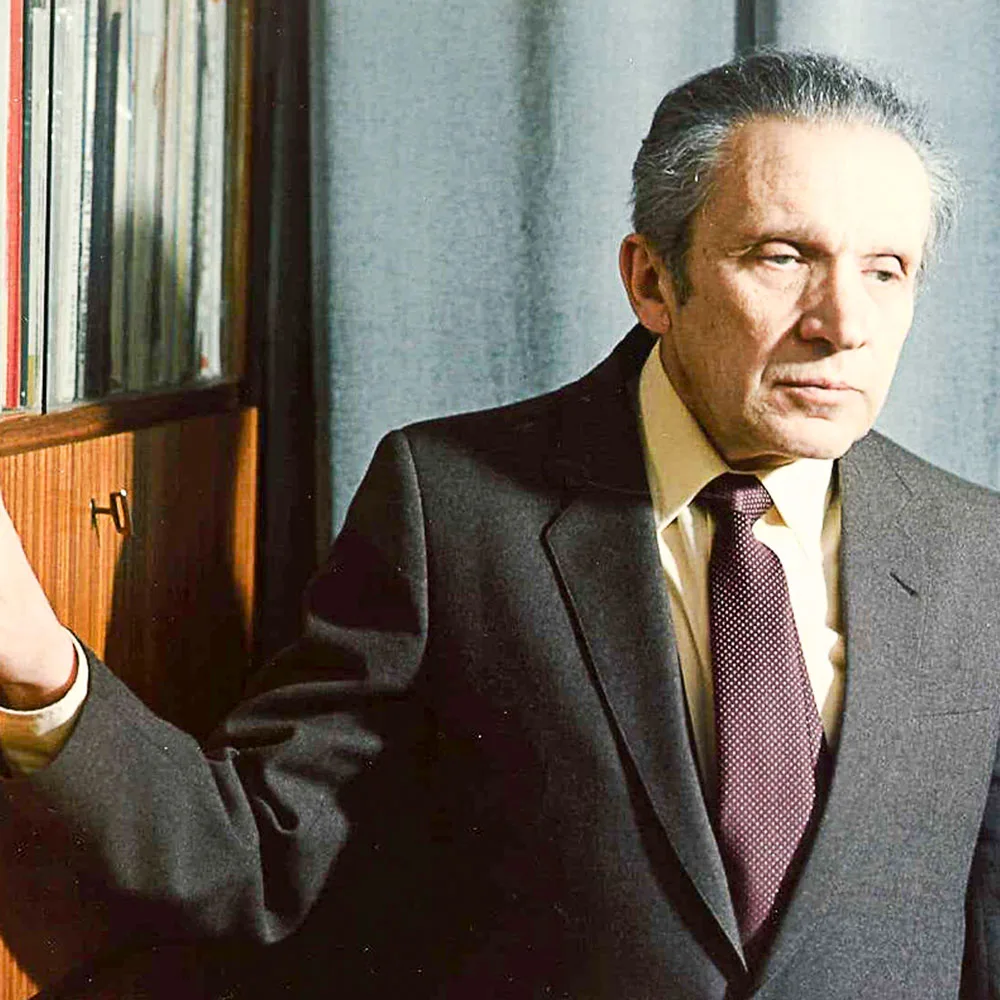
Mieczyslaw Weinberg centenary 2019
Viacheslav Dinerchtein
Not long ago I came across an entertaining little story. As it goes, Picasso was once challenged to define what makes for a true masterpiece – a chef-d’œuvre – and what separates it from a work of a skilled dilettante. To that, Picasso made some random scribble: “This could be a work of a skilled dilettante.” He then autographed it, adding, “And now it is a chef-d’œuvre.” This anecdote, true or not and amusing as it is, raises some not so amusing – indeed, rather uncomfortable – questions.
Can a true work of art stand on its own without any external backing? Can it defend itself through its own virtue? The first outcry from most of us believers is, “Of course it can!” Yet one cannot help but wonder how many genuine masterpieces fell into eternal oblivion because they lacked a Picasso signature.
How could it happen, for instance, that Schubert’s unquestionable genius was not so unquestionable to his contemporaries at the time he was an obscure unknown composer? Or that Van Gogh sold but one painting in his entire life? And are we certain the world would have inherited Van Gogh’s legacy, were it not for his sister-in-law, who, after Van Gogh’s death and that of his brother, worked tenaciously for years to build his name, which in turn brought the recognition his work deserved?
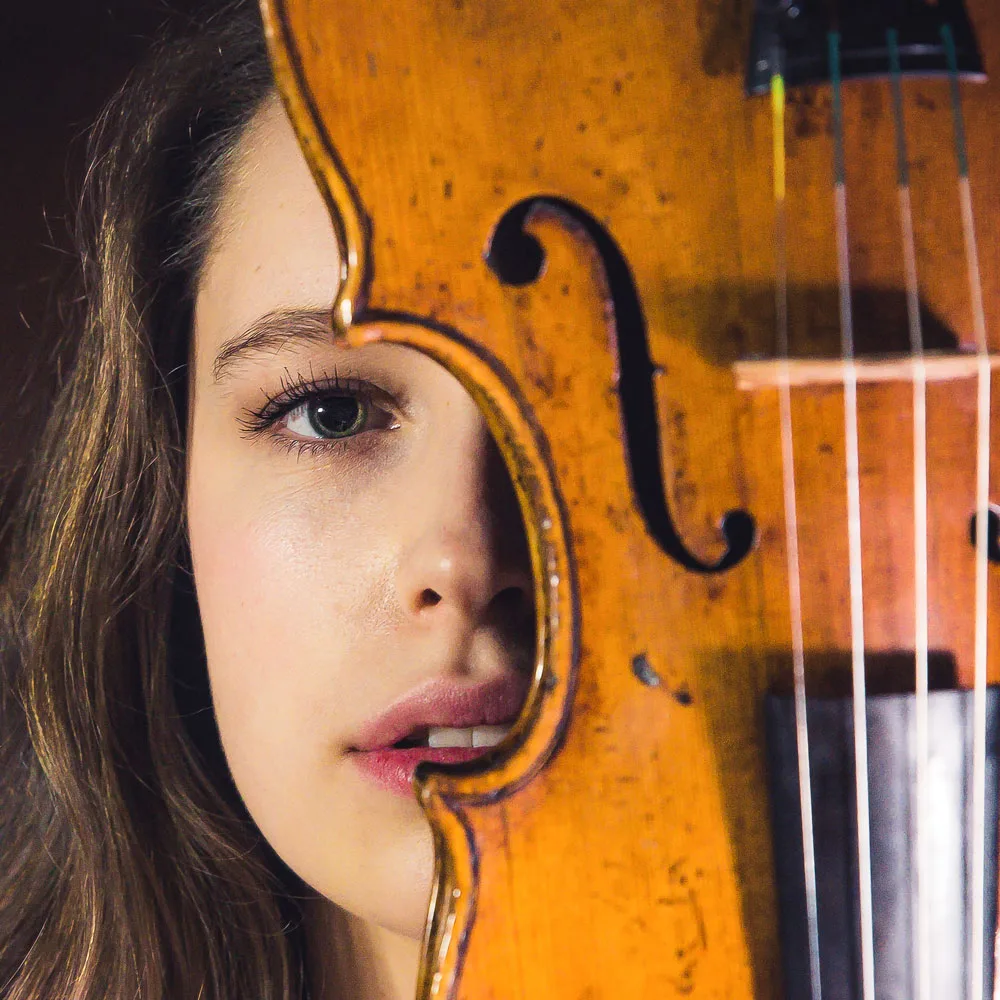
Freya Goldmark and the Stamford International Music Festival
Max Waterhouse sets the scene for this year’s events
Music-lovers in the midlands looking to add more local events to their calendar (the area already boasts the magnificent nearby Nevill Holt Opera) will be glad to know that Stamford International Music Festival is returning for its third year in the historic Lincolnshire town. Scheduled over a three-day weekend from May 15–17th, this year’s festival promises an enticing roster of up-and-coming performers and an eclectic programme of chamber music, curated by founder Freya Goldmark.
The name may be familiar to some: Karl Goldmark, the Hungarian Jewish composer who lived and worked in Vienna, was a direct relative. His violin concerto, once-forgotten, enjoyed a mid-century renaissance in the hands of Milstein and Perlman, while Goldmark’s nephew, Rubin, a second-generation immigrant in New York, was a talented student of Dvořák who became teacher in turn to Copland and Gershwin (the latter enlisted Goldmark’s help in orchestrating his 1925 Piano Concerto in F).
Suffice it to say, music runs in the blood; and it came as little surprise when, from a very early age – quite independently of parents and peers – Freya announced she would one day be a violinist. Her career has taken an atypical path ever since.
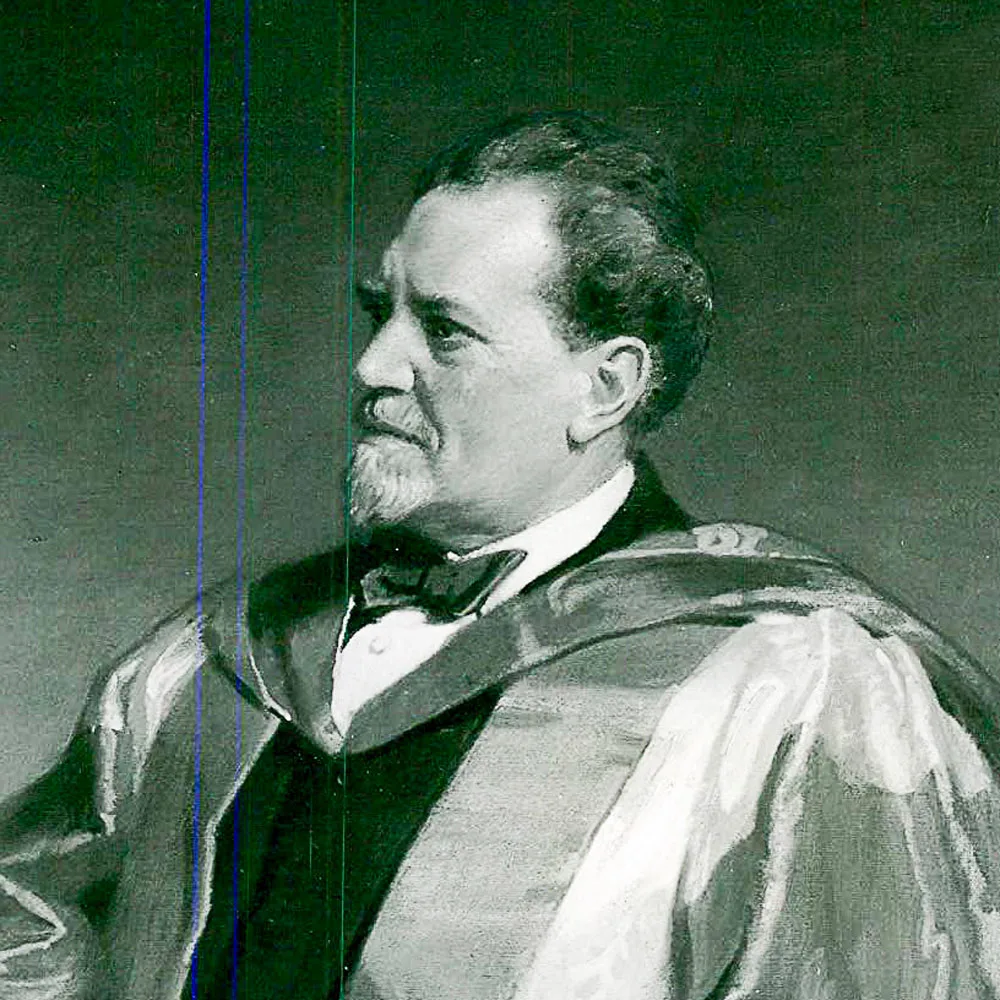
Henry Wood at 150 – a glimpse of the man behind the legend
Peter Mullen
From the moment when, aged two, Henry Joseph Wood, straining to get a better sight of a hurdy-gurdy man, fell out of his baby-chair and broke his nose, there was never any doubt that he would make his presence felt in the world.
He was born in 1869 in Oxford Street where his father was an optician and maker of model engines. Young Henry was all perpetual motion. He rigged up a communications system of pipes between his own room and that of his parents, but stuffed a cork in his end of the pipe at night, so they wouldn’t hear his insomniacal piano practice. He kept white mice and guinea pigs and won all the prizes going at junior school. He accompanied services on the church organ almost before his feet could reach the pedals – and he was conceited, saying, “When I was organist at St John’s Fulham, I improved the singing enormously.” He tells how everyone praised him: “Sir Arthur Sullivan asked my advice and Ruskin looked at me with considerable interest.”
When he was twenty-five he met Robert Newman and the rest is history – or rather, a living legend.

